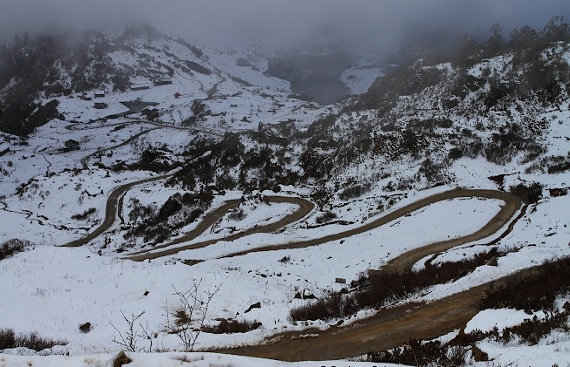CSIR-CRRI's REJUPAVE Tech Used in Arunachal High-Altitude Roads
By
siliconindia | Friday, 05 January 2024, 05:39 Hrs

Arunachal Pradesh has effectively employed the indigenous road construction technology 'REJUPAVE,' developed by the CSIR-Central Road Research Institute (CSIR-CRRI), the oldest and foremost road research organization under the Ministry of Science and Technology in India. This technology has been instrumental in building high-altitude bituminous roads in challenging low and sub-zero temperature conditions. The swift development of a robust road infrastructure along the Indo-China border is a top priority for the Government of India, aiming to enhance the operational capabilities of the defense forces. The construction and maintenance of bituminous roads at high altitudes in the state of Arunachal Pradesh, particularly in the challenging conditions along the China border, have historically posed difficulties for the Border Road Organization, India's primary road construction agency.
The majority of bituminous road construction activities face either suspension or delays during the winter months. This is due to the extended heating time required at elevated temperatures (approximately 160 to 170 degrees Celsius) in the hot mix plant for the production of a hot bituminous mix. Additionally, the bituminous mix must maintain sufficient heat at the paving site to ensure effective compaction for the desired durability and performance. In the case of hill roads and subzero temperatures, the transportation of bituminous mix from the Hot Mix plant to the project site experiences prolonged haulage time. This leads to a rapid cooling off of the bituminous mix before reaching the paving site, resulting in an inferior mix for the paving and rolling processes.
To address all these challenges Border Road Organization, project VARTAK, Arunachal Pradesh has successfully utilized an indigenous road construction technology 'REJUPAVE' developed by CSIR-Central Road Research Institute (CSIR-CRRI), Ministry of Science and Technology to construct high altitude bituminous roads at low and sub-zero temperature conditions. This technology is recently successfully implemented by BRO to build bituminous road sections at the World’s Highest Sela Road Tunnel and LGG-Damteng-Yangste (LDY Road) road section near the China border at the State of Arunachal Pradesh.
Additional Director General (EAST), BRO, PKH Singh, VSM informed that the "REJUPAVE Technology had been successfully utilized by BRO under the technological guidance and supervision of CSIR-CRRI to produce low-temperature bituminous mixes for construction of bituminous roads at Sela tunnel and LDY road site at 14000 ft and 18000 ft altitude respectively. This technology brings down the production and rolling temp of bituminous mixes by 30 to 400 C with negligible heat loss in bituminous mix during transit, despite long haulage time amid snowfalls. Technology will increase the working window of Road Construction Companies of BRO thus help us to build robust road network with faster pace under challenging conditions".
Satish Pandey, Principal Scientist at CSIR-CRRI and creator of REJUPAVE, revealed that this biooil-based asphalt modifier significantly reduces heating requirements for bituminous mixes and preserves their temperature during transportation. The use of REJUPAVE not only enables the Border Roads Organization (BRO) to construct subzero roads but also reduces greenhouse gas emissions in Arunachal Pradesh's environmentally sensitive region. Pandey highlighted that roads built with REJUPAVE show improved long-term durability and resistance to thermal cracking in cold climates. Verma Industries, the licensee of CSIR-CRRI technology, is actively producing REJUPAVE for nationwide field implementation.
